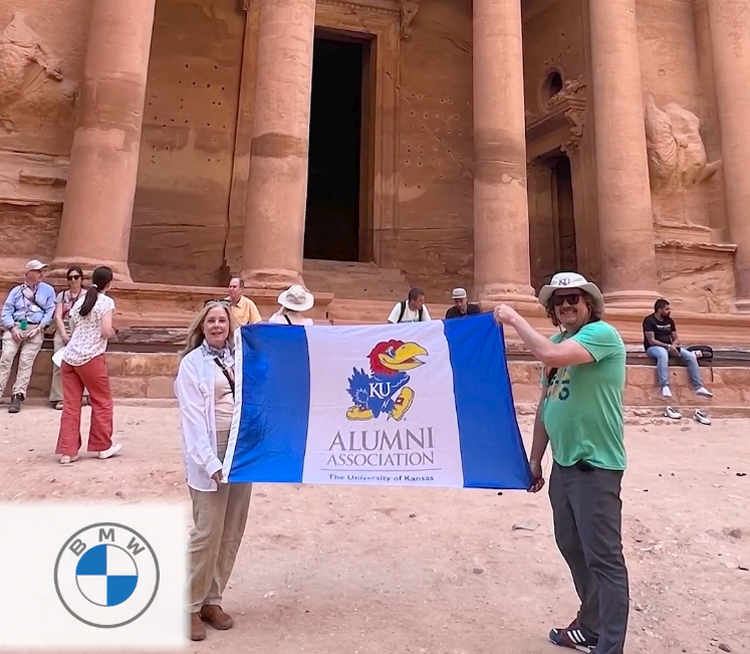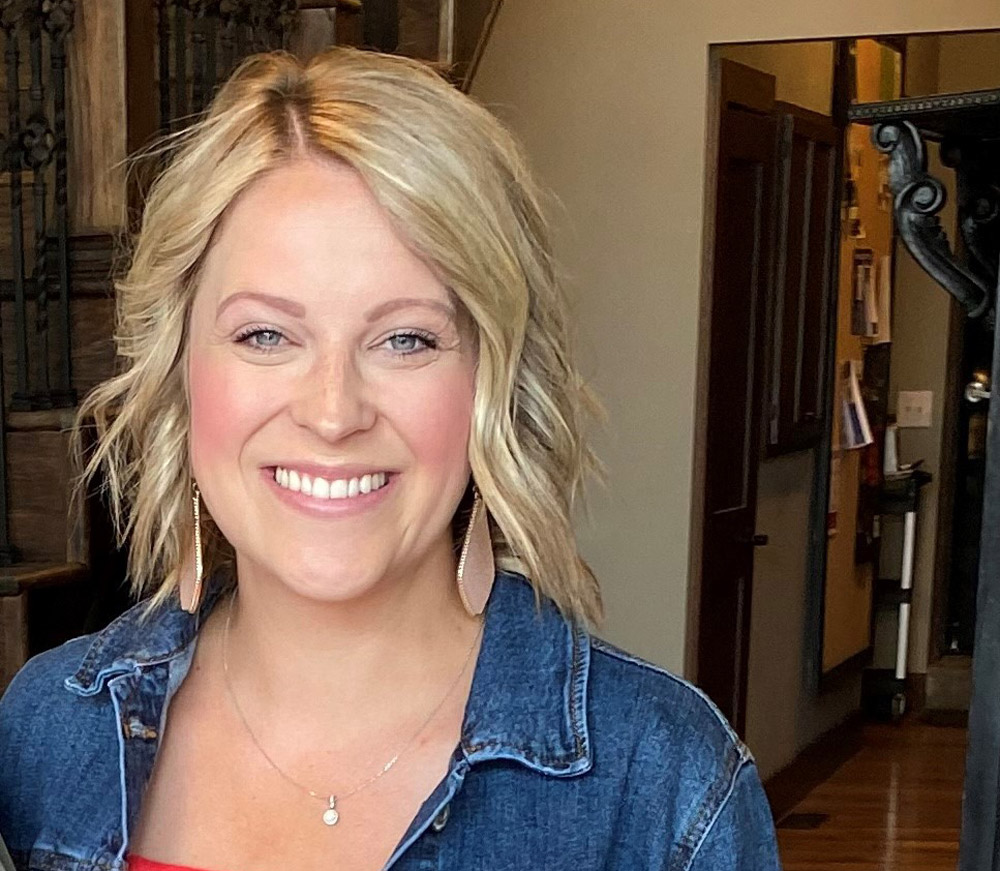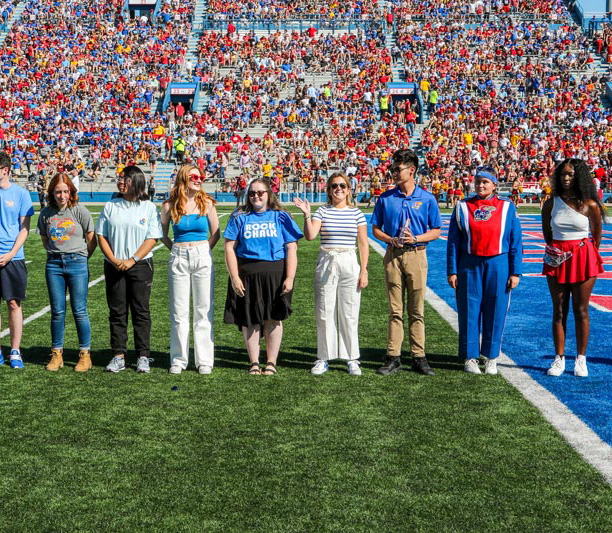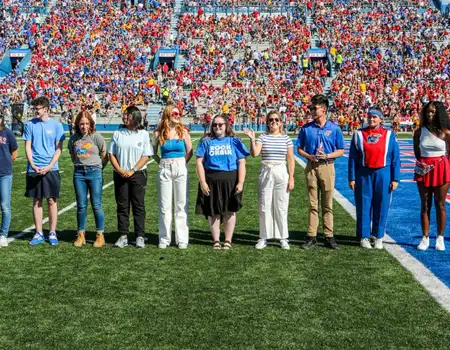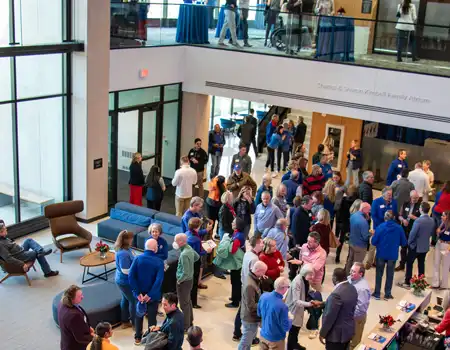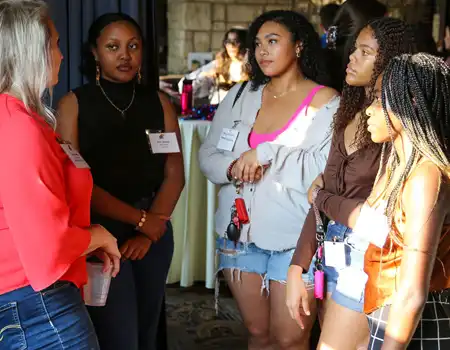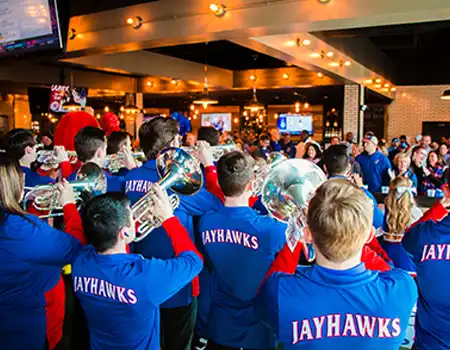Jayhawk cares for animals at ‘CockadoodleMoo’ sanctuary
- August 23, 2023
- Alumni, Career, Homepage News, News
In an isolated canyon an hour north of Reno, Nevada, a Jayhawk cares for animals that need help the most. For 17 years, Mark Robison and his wife Dianne have operated CockadoodleMoo Farm Animal Sanctuary, an all-volunteer sanctuary dedicated to providing a lifetime home for abused and rescued farm animals.
The plan didn’t begin with dozens of animals in mind. Their dog’s barking habit sparked their move to where the sanctuary stands today.
“We didn’t know she was constantly barking at first because she didn’t do it while we were home,” Robison, j’88, says. “After we got animal control called on us a few times by the neighbors, we looked into ways to keep her from barking, and they were generally all horrific. So rather than stop her from barking, we decided to move to a place where she could bark as much as she wanted.”
Now settled in a remote location, they realized they had ample land to aid animals in need.
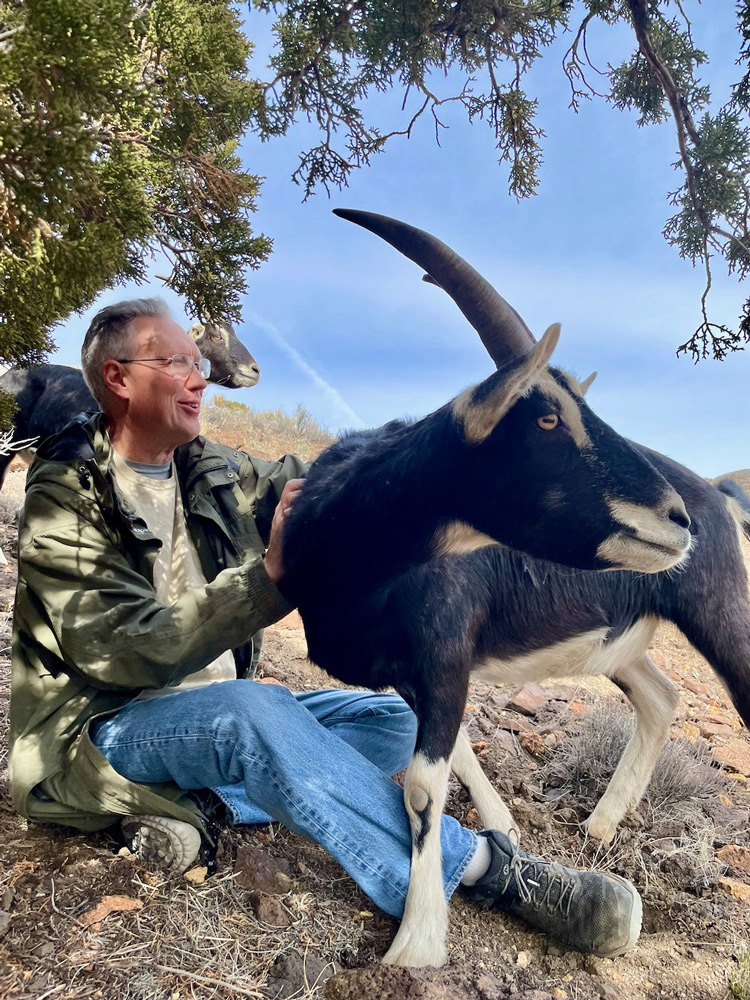
The mission of CockadoodleMoo emerged from a gap in the rescue landscape – farm animals overlooked and discarded due to profit-driven motives. Robison describes farm animals seized in abuse cases or found abandoned sent to auction, with zero bids from ranchers often resulting in euthanasia. CockadoodleMoo became the last bastion for these animals that no one else would take. “We saw this niche, these animals that would just be put down, so we decided we’ll take in as many as we can,” Robison says.
Today, CockadoodleMoo Farm Animal Sanctuary hosts over 50 animals at a time. Chickens, turkeys, rabbits, goats, pigs, donkeys, tortoises, hens and roosters all call it home.
The challenges are as diverse as the animals themselves. Roosters fight, pigs of different breeds need separate pens, and injured creatures demand special care. Predators like bobcats and coyotes necessitate fully enclosed shelters. Most of all, adaptability is needed. A chicken suddenly unable to walk means Mark and Dianne had a new housemate until they could make a separate safe space. Two new pigs arrived from an Arizona animal sanctuary having a tough time with this summer’s extreme heat.
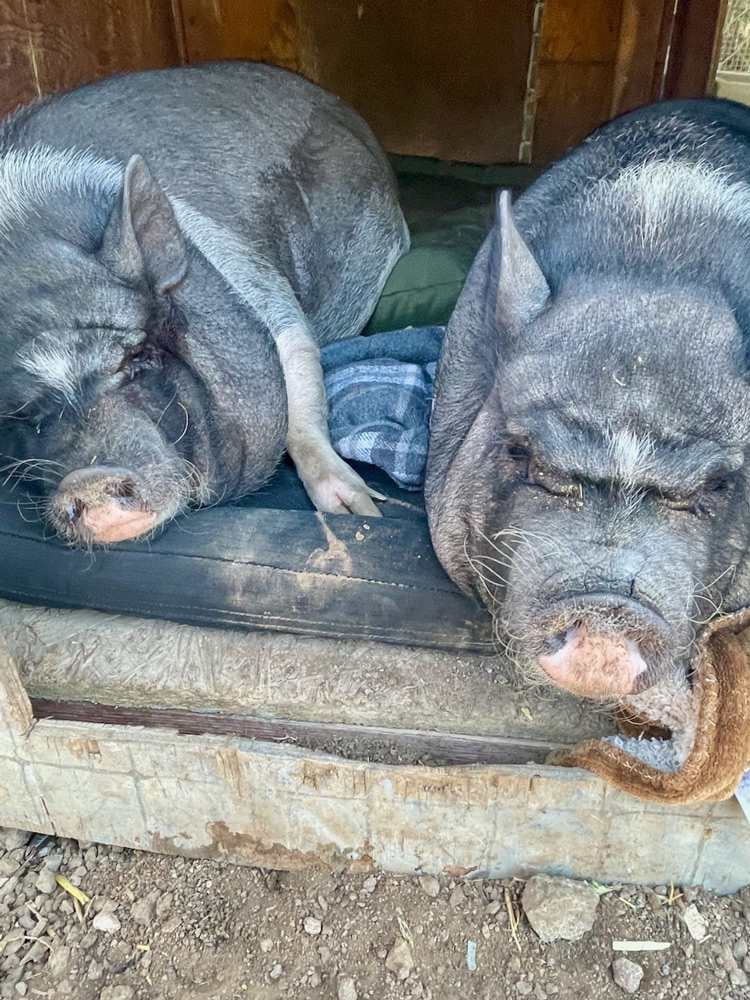
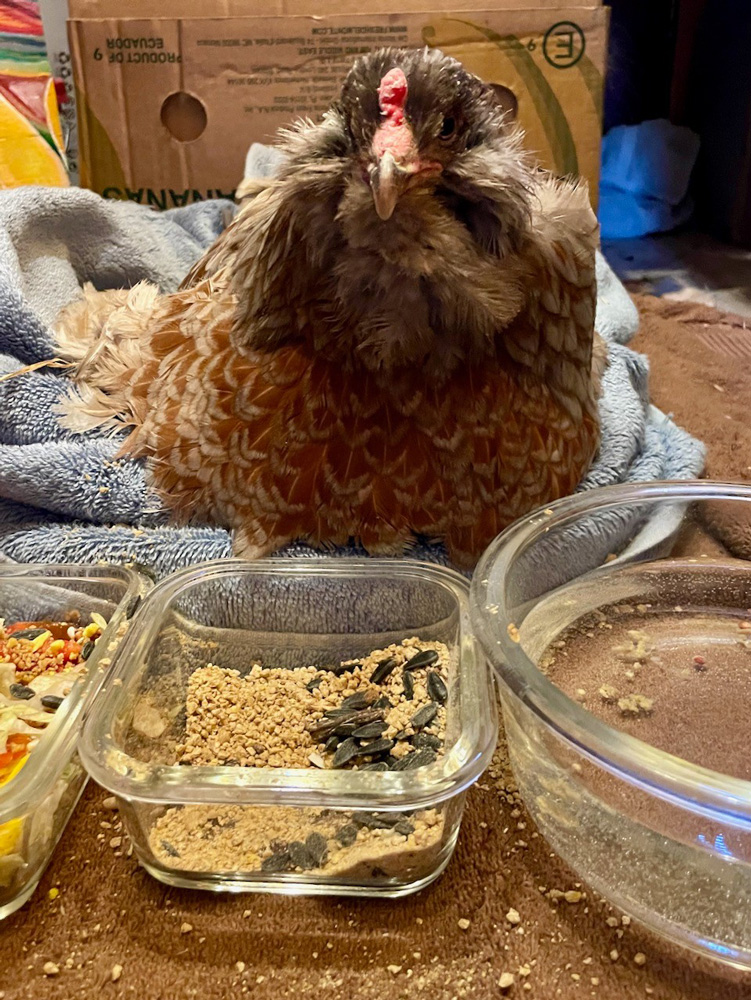
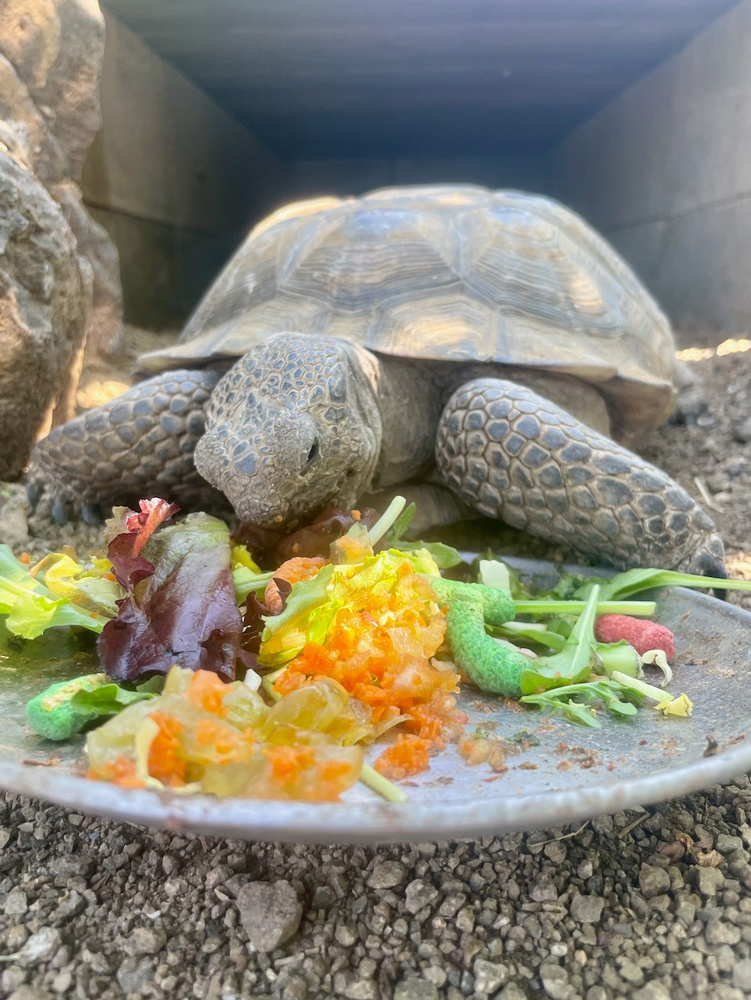
Supporting that many animals may sound like two full-time jobs, but Mark and Dianne manage the sanctuary while working elsewhere. Mark maintains a full-time job as the local government reporter and community engagement director at the Reno Gazette Journal, while Dianne works part time.
“You don’t get to take vacations when you run an animal sanctuary. It’s not like you can have somebody come dog sit for you because everyone has medications, special needs and some of them are dangerous,” Robison says. “So you need to know what you’re getting into if you’re going to start an animal sanctuary. But you know, we wouldn’t do anything else. It’s something we absolutely love doing.”
Volunteers are welcome at CockadoodleMoo, though the pandemic drastically impacted their numbers. Less help means some projects take longer, but the current resident’s welfare won’t be compromised.
“One of my wife and I’s rules from the very beginning was that we never have more animals than we can take care of just by ourselves,” Robison says. “We have to say no sometimes because the animals in our care get top priority, and we won’t diminish anybody’s quality of life because we’ve taken in more than we can handle.”
In the 17 years running CockadoodleMoo, Robison has seen both the sanctuary and himself evolve. He mentions overcoming squeamishness around the harsh realities of animal care.
“Anything to do with poop, injured or dead animals, things that people might shrink from have become second nature. Instead of turning away from pain and suffering, I can turn toward it because I realized that I can help,” Robison says.
It’s a hard job without obvious rewards. Few will celebrate you for your accomplishments, and the animals don’t thank you. Instead, Robison finds gratification in the process itself.
“Seeing the animals from when they were in a difficult situation, scared and cowering in a corner, to blossom and becoming the individual that you know they always were, it’s great to see,” Robison says. “The reward is they’re able to have a good life. The reward is really just helping when help is needed and letting that be the reward in and of itself.”
Jayhawks can donate through CockadoodleMoo’s website or follow updates on their Facebook page to support the sanctuary. When asked how individuals can support the general mission of CockadoodleMoo, Robison pauses.
“I would say, think about the animals in your life and what they need to be happy and try to provide that for them. Rather than thinking how to fit them into your life, look at it from the other direction of how you can give them the fullest life they can have with the most freedom and enrichment in their lives.”
Our Jayhawks Give Back program is presented in partnership with Andrew Wymore, Senior Realtor with ReeceNichols.
Jayhawks Give Back celebrates ’Hawks who are making a difference in ways big and small. Each quarter, we’ll feature a member of the KU family and their story. If you know a Jayhawk who should be featured in Jayhawks Give Back, let us know!

